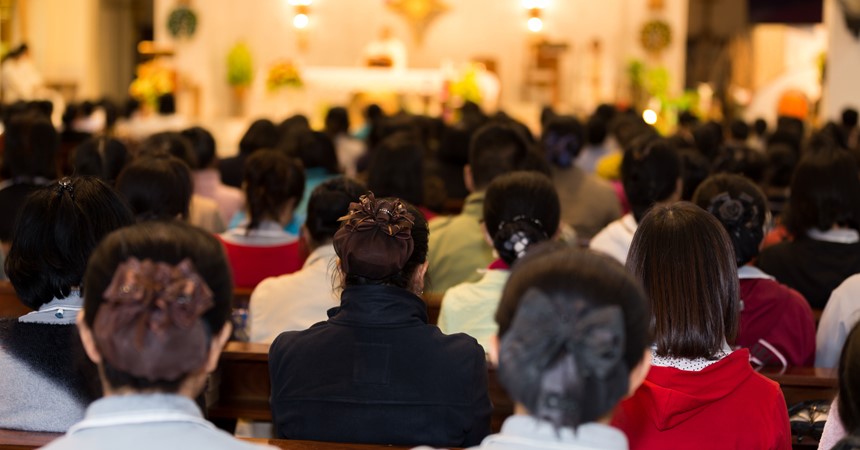Last year the International Theological Commission published a document titled ‘Synodality in the Life and Mission of the Church’. It traces the concept to the ancient Greek words making up the word ‘synod’ which can be translated as ‘way’ and ‘together.’
The document explains that the word ‘Synod’ indicates the path made together by the People of God and therefore it refers to Jesus Christ who presents himself as ‘the way, the truth and the life’ and to the fact that Christians, following him, were originally called ‘the disciples of the way.’
Synodality then, is ‘the People of God which concretely manifests and realises its being communion in walking together, in gathering in assembly and actively participating in all its members in its mission of evangelising.’
Pope Francis has called for an ’ecclesial conversion’ which requires an ongoing process to achieve reform and renewal of the Christian community. The Church is not to be turned into a museum which preserves a record of what God once did, but it must engage with what the spirit is doing now and this primarily involves listening and discerning, drawing on the wisdom and life-experience of God’s people, especially those at the margins.
Our approaching Diocesan Synod, with its first session on Saturday 23rd November is not just a meeting which will discuss topics of interest and maybe have an influence on Diocesan policy. Our Synod is an opportunity for our local church to be grounded in the vision of the Second Vatican Council concerning the nature and mission of the church.
With a proper spirit of goodwill and prayerful discernment, the Synod can give breathing room to the Holy Spirit to bring forth Pope Francis’ call for ‘a listening church, a synodal church’ at all levels of church life.
This is the same vision that is demonstrated in the preparation being undertaken across Australia for the Plenary Council to begin next year. The commitment to listening, dialogue and discernment in both the Synod and Plenary Council is part of Vatican II’s dynamic understanding of divine revelation, of the personal encounter between God and human beings throughout history.
As Archbishop Mark Coleridge recently commented, synodality now means ‘not some of the bishops some of the time but all of the Church all of the time.’ Here, he is acknowledging the way that the Holy Spirit works through all the faithful, often described as the sensus fidelium or sense of faith. It is not so much that each person has a mission, each person IS a mission on this earth, put here by God for that purpose.
the last Synod held in our Diocese in 1992-1993 made a powerful statement about the mission of all baptised Catholics in its theme: “To hear God’s people and empower them to participate fully in Christ’s mission.” The Pastoral Goals and the ten Theological Principles adopted by that Synod have exercised an ongoing positive guiding role for all levels of our Diocese since then.
Those people who participated in that Synod would affirm that it was an experience of a genuine synodal spirit where people could express freely their ideas and feelings with boldness and honesty. It was also an occasion where people listened with humility and an open heart to what others were saying.
Of course, a necessary precondition for dialogue and discernment to occur is that the faithful need to be there. The presence of all groups in our diocese united in bringing the word of God to life in our community can be an invaluable opportunity to demonstrate how missionary disciples can be credible witnesses of God’s love.
As Pope Francis said last month in designating October as Mission Month, “Our mission is to give pure and fresh air to those immersed in the pollution of our world; to bring to earth that peace which fills us with joy whenever we meet Jesus on the mountain in prayer; to show by our lives, and perhaps even by our words, that God loves everyone and never tires of anyone.”
